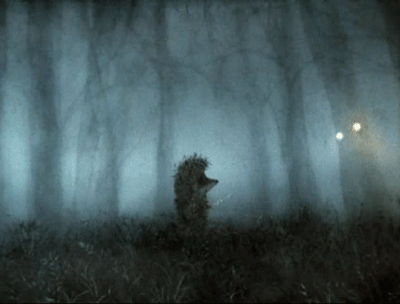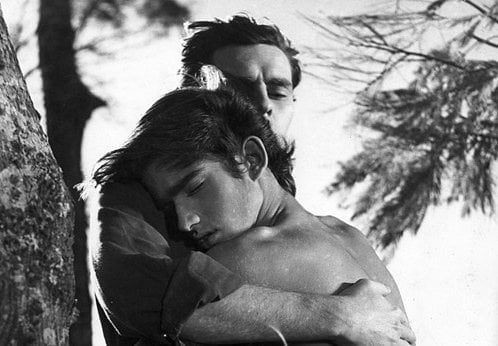“Sometimes everything seems just like a dream. It's not my dream, it's somebody else's. But I have to participate in it. How do you think someone who dreams about us would feel when he wakes up. Feeling ashamed?” Skammen [Shame] (Ingmar Bergman, 1968)
Jun
12
Loving Day

Eva (Liv Ullmann) and Jan Rosenberg (Max von Sydow) (via). DP: Sven Nykvist.
A [favourite] movie couple for Loving Day (USA)
– Eva
After Vargtimmen (1968), the second of Bergman's Ullmann/Von Sydow cycle. It was followed by En passion (1969).
Against the backdrop of war, a violinist couple tends a garden – and marriage – on the island of Fårö.
Deň radosti [A Day of Joy] (Dušan Hanák, 1972)
Jun
12
1971

Exuberant revellers. DPs: Martin Gazík, Alojz Hanúsek & Oskár Šághy.
Le temps des loups [The Heist] (Sergio Gobbi, 1970)
Jun
12
1938

Dillinger (Robert Hossein) followed by Stella (Virna Lisi). DP: Daniel Diot.
Morte a Venezia [Death in Venice] (Luchino Visconti, 1971)
Jun
11
Say HI Day

Von Aschenbach (Dirk Bogarde) and Tadzio (Björn Andrésen). DP: Pasqualino De Santis.
Characters say or wave hello on Say HI Day
A sickly composer meets and becomes infatuated with a boy during his stay in Venice.
“Love! Love!”Wholly Communion (Peter Whitehead, 1966)
Jun
11
1965

Allen Ginsberg reciting in front of an enraptured audience at the Royal Albert Hall. DP: Peter Whitehead.
– anonymous poet interrupting Harry Fainlight
Sochaux, 11 juin 1968 [Sochaux June 11th 1968] (Bruno Muel, 1970)
Jun
11
1968

Several of the striking workers in a row. The composition echoes the famous propaganda image of Marx, Engels, Lenin etc. DP: Groupe Medvedkine de Sochaux.
“This nation, for all its hopes and all its boasts, will not be fully free until all its citizens are free.”Crisis: Behind a Presidential Commitment (Robert Drew, 1963)
Jun
10
1963

An energetic Bobby arrives at the White House in his limousine. DP: Gregory Shuker.
– JFK
“In the evenings, the little Hedgehog went to the Bear Cub to count stars. They would sit on the log and sip tea, gazing at the starry sky. It hung on the roof, just behind the chimney. To the right of the chimney were the Bear Cub's stars and the stars to the left were the Hedgehog's”Ёжик в тумане [Yózhik v tumáne / Hedgehog in the Fog] (Yuri Norstein, 1975)
Jun
9
Donald Duck – 1934

Fireflies in the fog. DP: Aleksandr Zhukovskiy.
A [favourite] animated character for Donald Duck Day (USA)
– opening lines
On his way to visit his friend Bear Cub, Hedgehog finds himself in a dense mistbank. Strange sounds, and even stranger creatures, omit from it. And all he wanted was have strawberry jam and tea with his friend.
“Left early. Please come with the money… or, you keep the Rolls. All my love,The Thomas Crown Affair (Norman Jewison, 1968)
Jun
9

A newspaper covered in food scraps. Barely legible a large ad: BE A FINK FOR $25,000! WAS HE IN BOSTON ON JUNE 9TH? DP: Haskell Wexler.
Tommy”
“I'm going with this one.”O Menino e o Vento [The Boy and the Wind] (Carlos Hugo Christensen, 1967)
Jun
8
National Best Friends Day

The two friends in intimate embrace. DP: Antônio Gonçalves.
[Favourite] best friends in film for National Best Friends Day (USA)
– Zeca de Curva, running into the storm
The close friendship between two young men raises suspicion when the younger of them disappears..